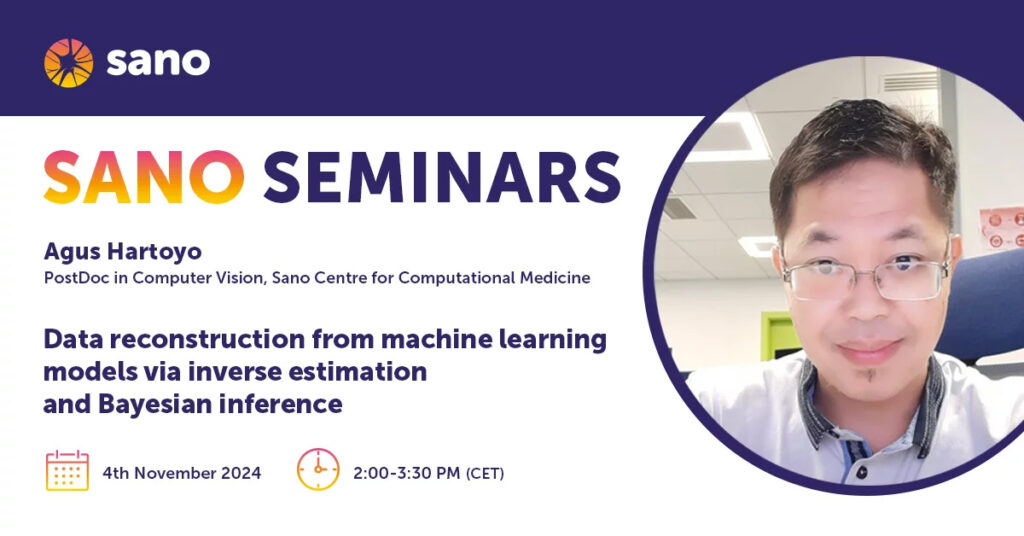146. Data reconstruction from machine learning models via inverse estimation and Bayesian inference
Agus Hartoyo - PostDoc in Computer Vision, Sano Centre for Computational Medicine, Krakow, Poland
Abstract:
The ability to recover original datasets from machine learning models offers profound benefits for understanding model behavior, validating models, and ensuring robustness. This paper addresses the novel challenge of reconstructing training data solely from a trained model via inverse estimation and Bayesian inference. The problem is framed as an inverse problem, where the goal is to infer the features of the original dataset that would result in the model producing observed outputs. To address this challenge, we propose a novel theoretical framework that rigorously establishes correlations between key variables in a multivariate Bayesian setting. Using a derivative-based approach, we derive expressions quantifying how variations in prior assumptions and model accuracy impact the divergence between true and estimated posteriors. This analysis demonstrates that the fidelity of recovered data is primarily governed by (1) the accuracy of the assumed prior, and (2) the accuracy of the model’s predictions.
Empirical evaluation using multiple benchmark datasets and machine learning algorithms reveals strong correlations between the accuracy of the assumed priors, model prediction accuracy, and the fidelity of data reconstruction. These correlations corroborate our theoretical findings, demonstrating that improved priors and more accurate models lead to reduced divergence between true and estimated posteriors.
Furthermore, we demonstrate the practical utility of this approach by creating synthetic models trained on the reconstructed data. These synthetic models closely replicate the performance of the original models on the same test sets. The strong correlation between the accuracies of the synthetic and base models, as well as their comparable absolute performance, indicates that our reconstruction method preserves key data characteristics.
This work contributes to advancing theoretical and practical techniques for data reconstruction and model introspection within machine learning. Our findings provide new insights into the inverse estimation process and set the groundwork for future studies exploring synthetic data generation and model analysis.
About the author:
Agus is a computational neuroscientist with a Ph.D. in computational neuroscience from Swinburne University of Technology, Australia. Prior to his Ph.D., he obtained an M.Sc. in Computer Science from TU Kaiserslautern, Germany. Agus has a keen interest in computational neuroscience, statistical inference, machine learning, logic, and formal methods. Currently, he serves as a postdoctoral researcher at Sano, where he develops novel mathematical and machine learning methods for analyzing complex health data and time-series, actively developing and combining theoretical frameworks and empirical validations for data reconstruction, classification optimization, and early disease detection using neural and EEG datasets.


